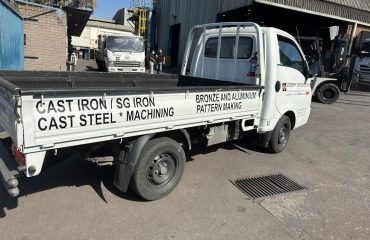body { font-family: sans-serif; line-height: 1.6; }
h1, h2, h3 { color: #333; }
h1 { font-size: 2.5em; }
h2 { font-size: 2em; }
h3 { font-size: 1.5em; }
Cogeneration systems, also known as combined heat and power (CHP) systems, are increasingly vital for efficient energy production. These systems simultaneously generate electricity and useful heat, maximizing energy utilization and minimizing waste. While the overall system design is complex, a crucial, often overlooked component is the steel used in its construction. The selection of appropriate steel grades is paramount for ensuring the system’s longevity, safety, and efficient operation. This post delves into the critical role of steel in cogeneration systems.
Choosing the Right Steel Grade for Cogeneration
The steel used in cogeneration systems must withstand demanding conditions, including high temperatures, pressures, and potentially corrosive environments. The choice of steel grade depends on several factors: the specific application within the system (e.g., boiler components, piping, pressure vessels), the operating temperature and pressure, and the presence of corrosive agents like steam or flue gases. Commonly used steel grades include:
- Carbon Steels: Relatively inexpensive and readily available, carbon steels are suitable for lower-temperature applications and components not directly exposed to highly corrosive environments. However, their high-temperature strength and corrosion resistance are limited.
- Low Alloy Steels: Offer improved strength and creep resistance at elevated temperatures compared to carbon steels. They are often used in boiler components and high-pressure piping.
- Stainless Steels: Excellent corrosion resistance makes stainless steels ideal for components exposed to steam, flue gases, or other corrosive substances. Different grades (e.g., 304, 316, 310) offer varying degrees of corrosion resistance and high-temperature strength.
- Heat-Resistant Steels: Specifically designed for high-temperature applications, these steels exhibit exceptional creep resistance and oxidation resistance. They are crucial for components operating at temperatures exceeding 500°C (932°F).
Careful material selection based on specific operating parameters is crucial for preventing premature failure and ensuring the system’s safety and efficiency.
Corrosion Resistance in Cogeneration System Steel
Corrosion is a significant concern in cogeneration systems, particularly in components exposed to moisture, steam, and flue gases containing corrosive compounds like sulfur dioxide. The selection of corrosion-resistant steel is essential for preventing degradation and extending the lifespan of the system. Stainless steels, with their inherent chromium content, offer superior corrosion resistance. However, the specific grade chosen depends on the severity of the corrosive environment. For instance, 316 stainless steel, with its added molybdenum content, provides enhanced resistance to chloride ion corrosion, which is often present in coastal areas or industrial settings.
Protective coatings, such as paint or specialized linings, can further enhance corrosion resistance, especially for carbon and low alloy steels operating in harsh environments. Regular inspection and maintenance are also vital for early detection and mitigation of corrosion.
High-Temperature Strength and Creep Resistance
Cogeneration systems operate at elevated temperatures, subjecting steel components to significant thermal stresses. Creep, the gradual deformation of a material under sustained stress at high temperatures, is a major concern. The steel chosen must exhibit sufficient high-temperature strength and creep resistance to maintain structural integrity and prevent failures. Heat-resistant steels and specific grades of low alloy and stainless steels are designed to withstand these demanding conditions. Careful consideration of the operating temperature and pressure is critical in selecting a steel grade with adequate creep resistance.
Regular monitoring of component temperatures and stresses, alongside appropriate safety margins in design, are essential for preventing creep-related failures.
Manufacturing Considerations and Weldability
The manufacturing process of cogeneration system components significantly impacts the final product’s quality and performance. The chosen steel grade must be readily weldable to facilitate the fabrication of complex components. Some steel grades may require specialized welding techniques or pre- and post-weld heat treatments to ensure the weld’s integrity and prevent cracking or other defects. The manufacturing process should also adhere to strict quality control measures to guarantee the structural soundness and durability of the components.
The fabrication process should also consider the potential for residual stresses introduced during welding. These stresses can impact the component’s lifespan and should be carefully managed through appropriate techniques.
Cost-Effectiveness of Steel Selection in Cogeneration
While selecting the most robust and corrosion-resistant steel is crucial, cost-effectiveness should also be considered. High-performance steels, such as heat-resistant alloys, are significantly more expensive than carbon steels. Therefore, a balance must be struck between material cost and the long-term operational costs associated with potential failures, maintenance, and system downtime. A life-cycle cost analysis can help in optimizing the steel selection, considering both initial investment and long-term operational expenses.
Careful evaluation of the operating conditions, potential risks, and the system’s lifespan allows for a cost-effective steel selection that ensures both system reliability and economic viability.
In conclusion, the selection of steel for cogeneration systems is a critical decision impacting the system’s efficiency, safety, and longevity. A thorough understanding of the operating conditions, material properties, and manufacturing considerations is essential for choosing the optimal steel grade. By carefully balancing performance requirements with cost-effectiveness, engineers can ensure the reliable and efficient operation of cogeneration systems for years to come.
SEO Tags:
- Cogeneration Steel
- Steel for CHP Systems
- High-Temperature Steel
- Corrosion Resistant Steel Cogeneration
- Combined Heat and Power Steel Selection




